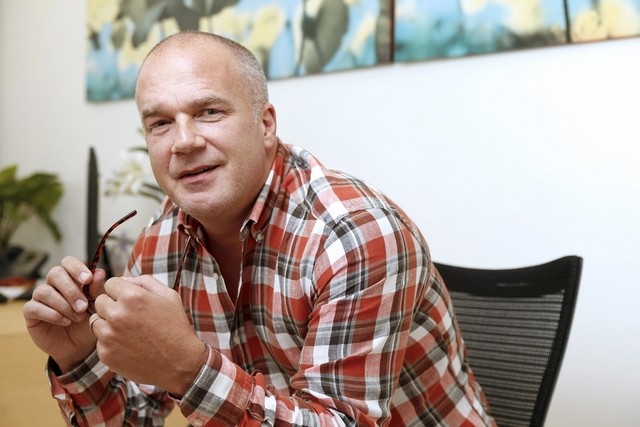
Sleep Disorder in Dubai – Gulf Today
Gulf Today Sharjah: It is best to sleep with the lights out or for those who want mood lighting, with a red light and not a blue one.
“Make sure that your room is completely dark,” Dr Jared Alden told The Gulf Today.
“Well, if you are for mood lighting, then, red lights are better than the blue lights because the red signals darkness while the blue signals the brain it is time to stay awake,” he added.
“That is why there should be no screens (exposure to laptops or personal computers and other similar gadgets) an hour before bedtime because the screens are in blue which means it would be difficult to go to sleep,” Alden continued.
With over 25 years of work experience as a psychologist and two decades as a psychotherapist, Alden shared his views on sleep disturbances and disorders on Thursday, ahead of the 2015 edition of the World Sleep Day (WSD) held every second Friday of March.
Spearheaded by the World Association of Sleep Medicine, WSD is a cause that aims to spread the benefits of healthy sleep as well as the prevention and management of sleep disturbances and disorders.
The first WSD was observed in 2008. The theme for 2015 is:
“When sleep is sound, health and happiness abound.”
In the UAE for the past six years and affiliated with the German Neuroscience Centre in Dubai Healthcare City, Alden became interested in sleep disturbances and disorders because a big number of his patients throughout his career had sleeping problems.
Based on his observational studies, these patients have been suffering for a long time and have taken all measures in order to sleep well but failed.
“When they see me, they are already having problems with their sleep,” Alden said, adding that the patients had taken upon themselves to remedy their condition such as drinking milk, avoiding fatigue or physical exercise and caffeine before bedtime.
He differentiated between sleep disturbance and sleep disorder by the frequency and intensity at which these occur, as well as taking into consideration the struggle and the restlessness one experiences.
“Some may also wake up in the night in a panic mode,” Alden said.
“It is the men who are more bothered and worried. More men seek help than the women,” he said, when asked of the profile of his patients in the UAE.
Alden’s patients are highly-educated professionals between 25 and 37 years who experience less than five hours of sleep a night and wake up more than thrice in the night.
He stressed that sleep disturbances and disorders must be treated more as a medical than a behavioural problem because “these are underlying causes of medical conditions such as diabetes, depression, anxiety, menopause, andropause, thyroid issues, asthma and sleep apnoea.
“Work stress is a big factor. But we are not relating this to behaviour. It is more about medical conditions,” Alden said.
On diabetes, he explained: “The body wakes up when the blood sugar is too low. That means to say that you have to get up and eat.
“My patients with diabetes are already seeing their endocrinologists. They see me because with diabetes are mood and emotional swings which affect sleep,” Alden said.
On depression, Alden said: “Depression is a medical condition. It means something is out of balance.”
He recommends his patients to see an otorhinolaryngologist or an ear-nose-throat specialist when their problems include loud snoring and daytime sleepiness.
“They need to be screened for sleep apnoea that happens when not enough oxygen goes to the brain which is dangerous,” Alden said.
Other sleep hygiene rules to avoid sleep disorders:
* Even with technology, the bed should only be for sleeping and not used as a workplace or a social media centre.
* Try to go to bed at the same time every night because the body responds to a fixed cycle of wake-up time.
* Ideal room temperature for sleeping is 20 degrees Centigrade. The body cools down when it is time to sleep but it may heat up in the duration of the sleep forcing one to wake up.
* Refrain from eating two hours before bedtime because digestion would make the body work unnecessarily forcing one to be awake.
* Clock must not be within viewing sight from the bed as this may remind the person to be awake and monitor the hours away instead of sleeping.



